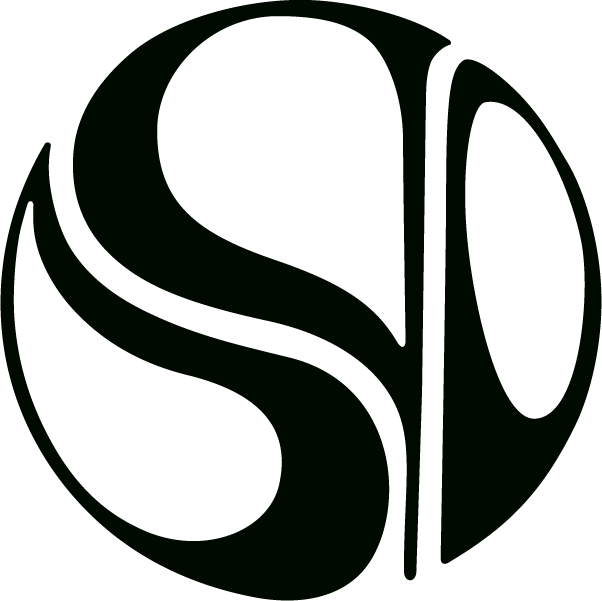Herbal Supplements for Foundational Wellbeing
Herbalism is the study and practice of the medicinal and therapeutic use of plants. Over 50,000 medicinal plants are used around the world. Around a quarter of prescribed medications are derived from medicinal plants. And 80% of the world's population depends mainly on traditional medicine (herbs and food) as a primary source of healthcare. (That is major!)
In the west, and in modern healthcare, herbalism is still commonly thought of as a way to treat symptoms - a natural treatment, but a reaction to an injury or imbalance nonetheless. We tend to medicate away how we feel, or to medicate in order to feel a certain way. Often we layer on bandages over quick-fixes rather than making the effort or enduring the discomfort to relate to ourselves.
Building a deep and permanent relationship between our bodies, minds, and spirits is essential for health. Without this, we can be very much at a loss in the world of wellness or when searching for a remedy for our ails. By learning to interpret and understand our symptoms and their causes, we can employ preventative medicine as a lifestyle.
My method is always to understand causes as fully as possible and then to address those causes. Typically, this is done first with food medicine (diet) and lifestyle adjustments. This foundation is necessary for herbs and supplements to work effectively.
When we reestablish fundamental balance, many (and sometimes all) symptoms recede, leaving us with less to treat specially.
As important as personalization is, there are some herbs and supplements that I recommend to almost every client. These essentials have been proven over thousands of years with global use, and continue to benefit us in modern, and often urban, environments.
SUPPLEMENTS FOR FOUNDATIONAL WELLBEING:
Ashwagandha is a world-famous and historically renowned adaptogenic herb. As an adaptogen, it reestablishes balance and harmony in the body and is a favorite for stress management and anxiety support. It supports the parasympathetic nervous system, which is the body’s rest and digest system, and is known for lowering cortisol levels. A typical dosage is 2-3g/day or ½ tsp 2x day and can be taken in the morning or night to help with energy, mood, sleep, immunity and more. It can be wonderful for long-term support, with breaks every year or so to ensure it’s still needed.
Medicinal mushrooms are a category of fungi with a range of benefits. They are immunomodulators, helping activate and regulate our immune systems, prebiotics used for gut health, as well as nootropics that enhance, memory, cognitive performance, mood, and overall brain health. Different mushrooms have different specific actions and benefits. Shiitake contains essential amino acids and B1, B2, and D2 vitamins, and is a common cooking ingredient. Reishi ("the queen”) is a legendary species of Ganoderma fungi full of nourishing beta-glucans. Its Chinese name, ling zhi, means ‘divine mushroom’ or ‘longevity mushroom’ and was highly favored among Chinese emperors. Maitake, nicknamed the “dancing mushroom” by happy wild-harvesters, attracts attention for its far-reaching benefits to ecosystems both personal and planetary.
Turmeric is a staple in Indian Ayurvedic medicine. It provides medicinal nourishment for the whole body and used to maintain healthy blood, skin, and circulation. Two components, the vibrant orange-gold pigments known collectively as curcuminoids and essential oils known as turmerones, work together as powerful antioxidants helping to attack nasty free radicals which damage and age our bodies. They also stimulate a healthy inflammation response while enhancing circulation, protecting the brain, rejuvenating the liver and targeting pain. Turmeric is also prebiotic when consumed whole or "wholistically!"
Probiotics: The bacterial population of the gastrointestinal tract are probiotics. They create and maintain balance throughout the body. A diet of diverse probiotic foods like sauerkraut, kimchi, miso, and kombucha along with a probiotic supplement diversifies and strengthens good gut microbiota and reduces inflammation in the entire digestive tract. Probiotic ferments are popular, so explore! However, make sure they are unpasteurized/raw to preserve the live cultures. I recommend both eating probiotic foods, and taking a probiotic supplement.
Prebiotics are fibers and starches that stimulate the growth of good gut bacteria. There are two types of fiber: insoluble and soluble. Insoluble fiber, found in veggies and whole grains, commonly known as ‘roughage,’ cannot be broken down and passes through the digestive system, relieving constipation and helping with regularity. Soluble fiber, found in nuts, seeds, lentils, and some veggies and fruits, binds to cholesterol and sugar, slowing their absorption into the blood. They do not get absorbed from the small intestine but travel to the colon where they ferment. The fermentation process feeds and increases the number of probiotic bacteria. Most notably, prebiotics can stimulate the growth of the desired bifidobacteria, which provide many health benefits for humans. Learn more about how, and what, keeps your microbiome thriving!
Herbalism is a holistic way of life that includes nutrition, movement, and environmental factors as well as herbs and supplements. When seeking herbal treatments or wanting to supplement, inquire about the cause of your symptoms first. Let this lead you to the right remedy. The best place to start is always at the beginning with supplements that support our major, stabilizing systems.
This post is sponsored by Pukka Herbs. Learn more about the supplements mentioned in this story and shop others from them, here.
Photos by Cristina Girod and Rachelle Robinett.






